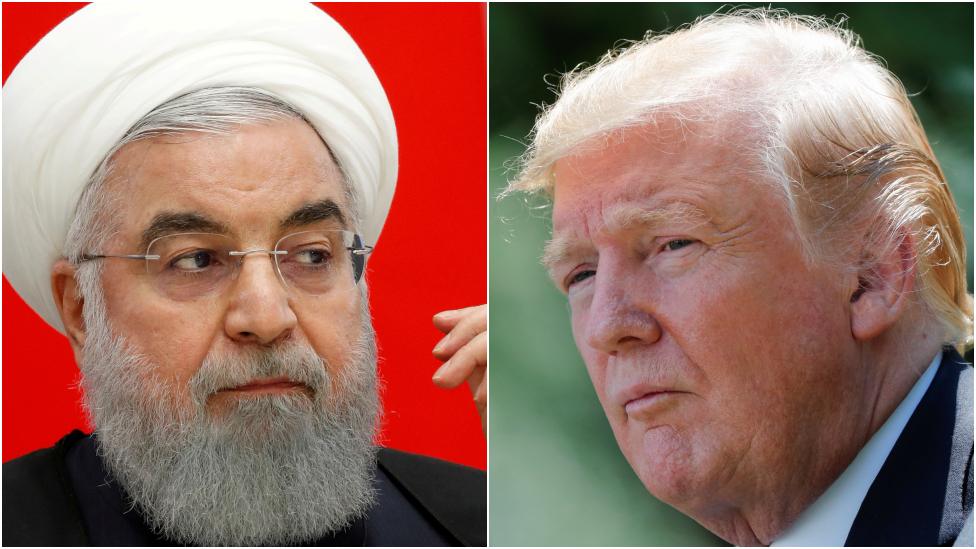UAE tanker attacks blamed on 'state actor'
- Published
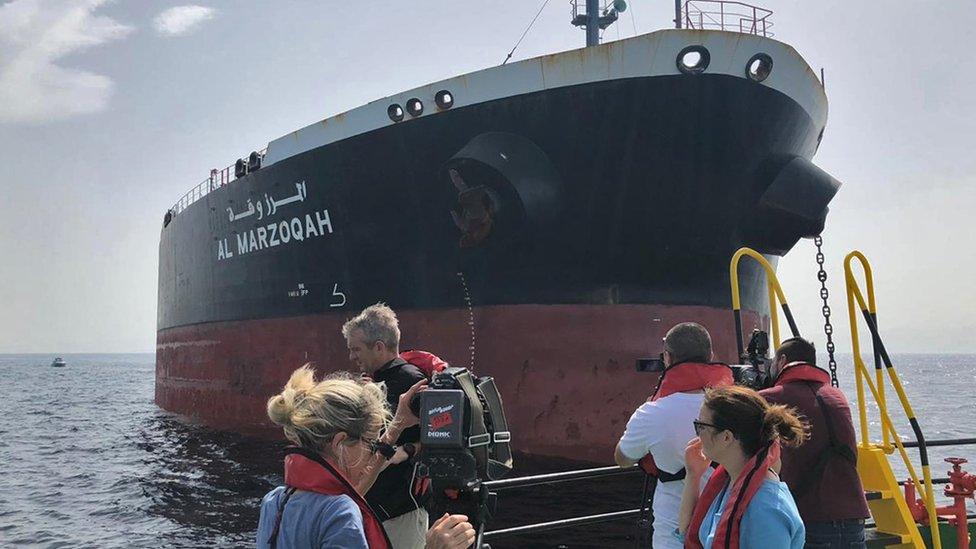
The Saudi oil tanker Al-Marzoqah was one of the ships damaged
The United Arab Emirates has told the UN Security Council a "state actor" was most likely behind attacks on four tankers off its coast.
The 12 May attacks bore the hallmarks of a "sophisticated and co-ordinated operation", according to its report.
The UAE did not say who it thought was behind the attacks, which also targeted vessels from Saudi Arabia and Norway.
The US has accused Iran of being behind the attacks but Tehran denies this and has called for an investigation.
The attacks took place within UAE territorial waters east of the emirate of Fujairah, just outside the strategically vital Strait of Hormuz, in what the UAE called a "sabotage attack".
They exacerbated long-standing tensions between Iran, and the US and its allies in the Gulf.
The BBC was invited on board the USS Abraham Lincoln in the Arabian Sea
What does the report say happened?
According to the UAE-led investigation, which was presented to a closed session of the UN Security Council in New York, the attacks showed a "high degree of sophistication".
"The attacks required the expert navigation of fast boats" which "were able to intrude into UAE territorial waters", the report's preliminary findings say.
Divers were used to attack the ships using limpet mines in order to cause damage but not cause a major explosion, the presentation says.
There were no casualties but Saudi Arabia has said two of its ships suffered "significant" damage. Another tanker was Norwegian-registered, while the fourth was UAE-flagged.

Pressure-cooker atmosphere

There are two aspects to the tensions under way in the Gulf. One practical - what the Americans insist is a real threat from Iran and its allies in the region - and a political one - a push by Washington and its key Gulf allies to paint Iran as an imminent threat to peace.
The latest UAE-led findings on the tanker attacks last month have to be seen in this context.
At the UN they - along with Saudi Arabia and Norway - blamed a "state actor" but stopped short of specifically naming Iran. But then US officials have already said Iran was responsible, with reports that the US Navy tracked a flotilla of small Iranian vessels from which they believe divers operated to mine the ships.
So the accusations are not new as such, though made in a more formal setting.
But they underscore the pressure-cooker atmosphere in the region with any mistake or misunderstanding by either side risking a serious military engagement.

Why is Iran being accused?
The attacks happened at a time of escalating tension between the US and Iran, long-time foes.
They took place days after the US sent warships and bombers to the region in response to what it said was an unspecified plan by Iran to attack US forces in the area.
While it is unclear why Iran would carry out a relatively low-level attack on the multinational tankers, observers have speculated that it could have been to send a signal to forces ranged against it that it is capable of disrupting shipping there without triggering a war.
US special representative for Iran: "We are not looking to get into a war"
Responding to the UAE report, the Saudi Ambassador to the UN, Abdallah Y al-Mouallimi, said the kingdom believed "that the responsibility for this action lies on the shoulders of Iran. We have no hesitation in making this statement," Reuters news agency reported.
US National Security Adviser John Bolton previously said "naval mines almost certainly from Iran" were to blame for the damage, although he provided no evidence to support the allegation.
Iran's foreign ministry has rejected the US accusations as "ludicrous" and accused Mr Bolton of being a "warmonger".
Earlier this week, Israeli media reported that the Israeli intelligence agency, the Mossad, had provided the US with unspecified material linking Iran to the attacks, external.
An unnamed senior Israeli official said on Thursday that Israel had evidence that "the Iranians did it… without a doubt, either directly or by proxies".
Why have tensions risen?
The Trump administration has taken a hard line towards Iran, accusing it of being a destabilising force in the Middle East. For its part, Iran has accused the US of aggressive behaviour.
Tensions increased last month when Washington ended exemptions from sanctions for countries still buying oil from Iran. Washington reinstated sanctions a year ago when it abandoned an international nuclear deal curbing Iran's nuclear programme.
The decision was intended to bring Iran's oil exports to zero, denying the government its main source of revenue.
In response, Iran announced it would suspend several commitments under the deal.


- Published24 May 2019
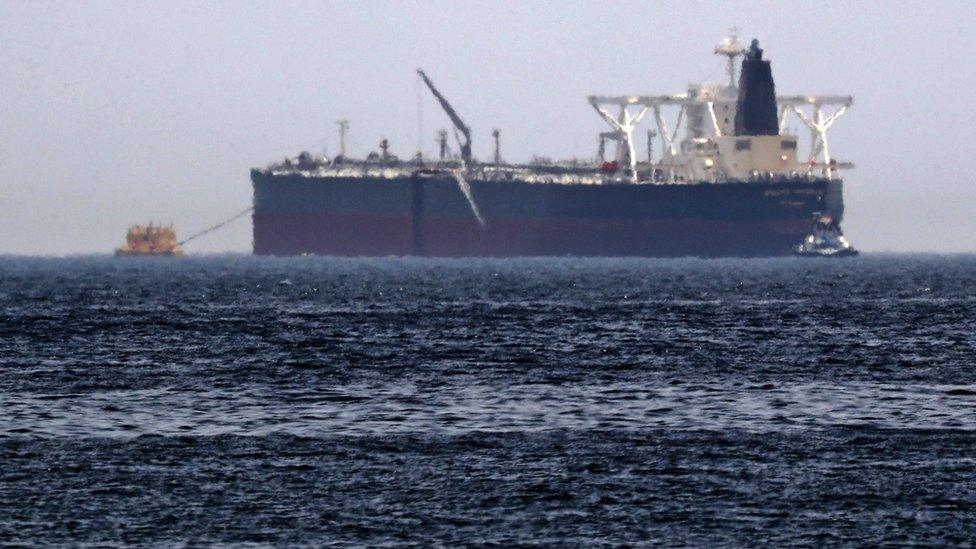
- Published17 May 2019
- Published16 November 2021
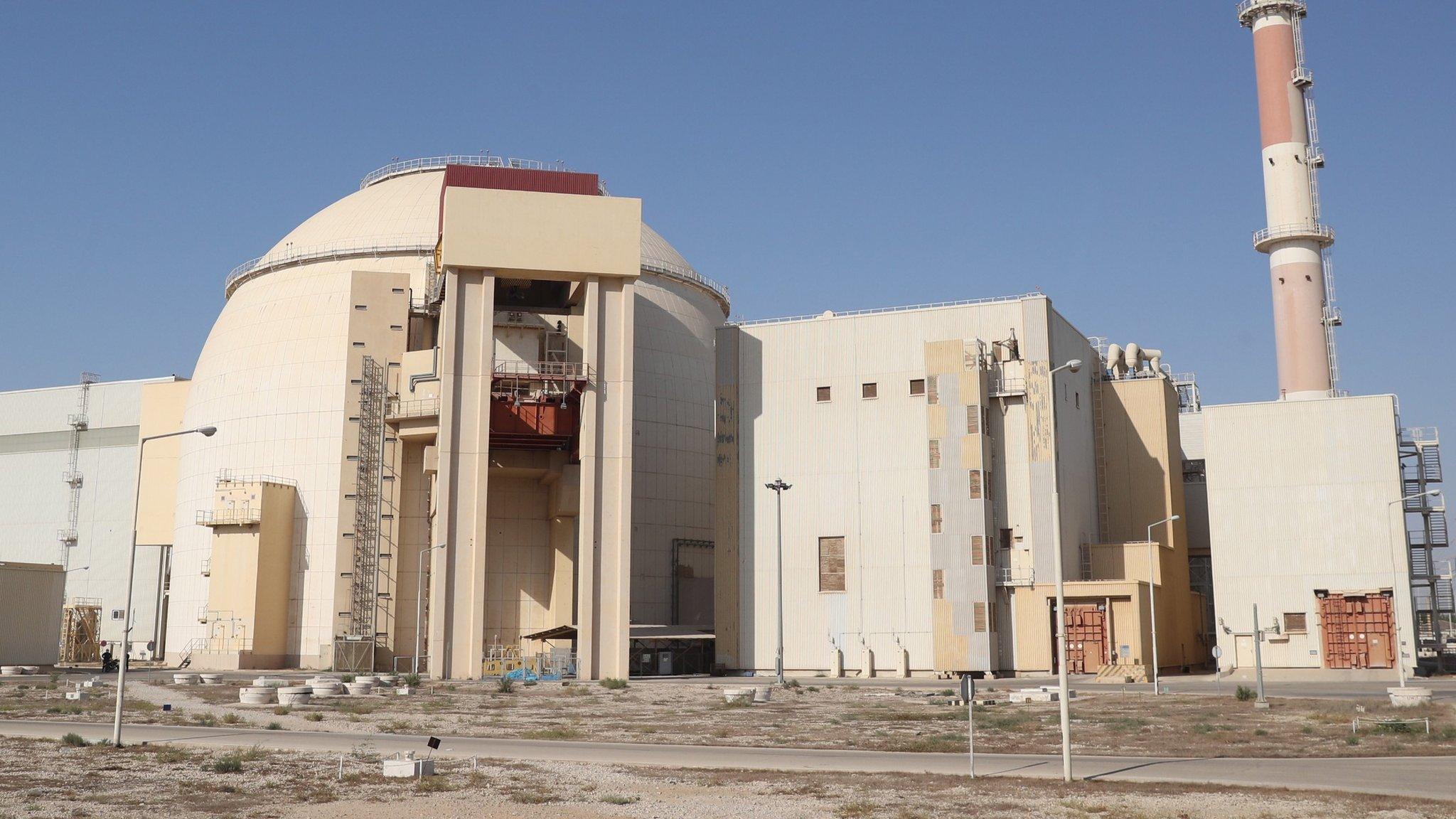
- Published21 May 2019
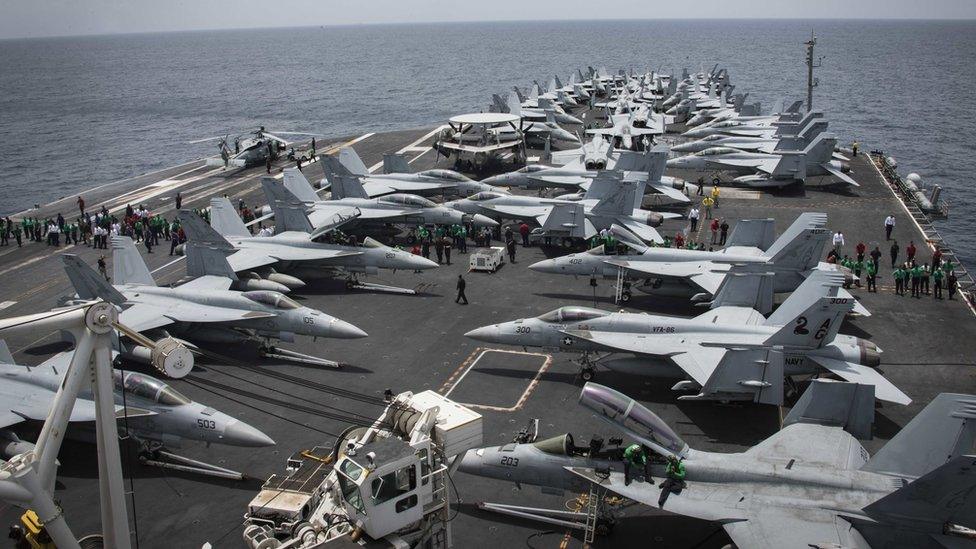
- Published17 May 2019
